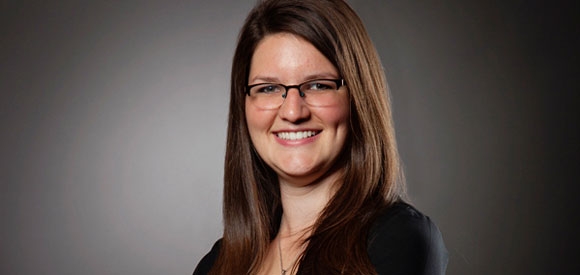
“In high school, I developed a passion for the environment and making a difference in small, northern communities.”
What has made your time at UBC the most memorable?
There were many unique learning opportunities – both inside and outside of the classroom that made my time at UBC memorable, but the most memorable aspects of my time at UBC was the informal time spent with professors, peers and other members of the UBC community. The random conversations and debates which were started and spiralled (often for hours, or to be returned to on later dates) about real world problems, visions of the future, our role in change and many more, lighter topics such as the feasibility for fuelling airplanes midflight. The wide variety of people and viewpoints at UBC, as well as many extracurricular opportunities, allow these conversations to flourish.
Why did you choose Engineering?
My pathway to choosing engineering was not entirely conventional. In high school, I developed a passion for the environment and making a difference in small, northern communities. As I began researching my career path, I debated between environmental science and environmental engineering. It was suggested that engineering may provide me with greater options should I decide to switch my field of study. After starting engineering, I began to grow to love the engineering side of the program just as much as the environmental side!
Tell me about your experience in Engineering. What have you learned that is most valuable?
I believe that engineering provides you with many basic skills which you can use to grow yourself and your career. While there were many technical aspects which I believe will help me grow my career, I do not believe that these were the most valuable part of my engineering degree. I believe that many of the soft skills which I learned will be most valuable – both professionally and in everyday life. These skills allow me to manage time, work in a team, and the ability to determine what is reasonable.
How are you applying the skills you learned through your studies at UBC?
There is one course at UBC that I will always remember. We went through three quarters of the course with hard calculations, and difficult modelling and simulations. By the time we finally understood the concepts, we were told “But really, this is just a guess and it doesn’t really work like this in the real world”. I have applied this in my work terms by understanding, as much as we like to apply technical skills, these don’t always play out into the field, and some flexibility needs to be incorporated into design.
What has been your most memorable/valuable non-academic experience studying engineering at UBC?
One of my most memorable and valuable non-academic experiences at UBC was my involvement with Engineers Without Borders (EWB). Through EWB, I was able to work with a team of students to outreach to local elementary to high school students. Through presentations in classrooms, to a leading a team to host the inaugural EWB High School Conference, working with the students was a very rewarding experience. While my direct role with EWB was memorable, participating in the organization in general has left me with many friends and memories that stand out during my time at UBC.
How do you feel a degree in Engineering has benefitted you compared to a different field of study?
Compared to different fields of study, I believe engineering has provided me the background to work through a problem from a variety of perspectives. In addition to the technical aspect, engineering has also provided a background in economics and systemic thinking that allow me to provide the best solutions to the problems we face.
What advice would you give a student considering Engineering?
Engineering is a very diverse career path, with many non-traditional specialities. By choosing engineering, you are not limited to building bridges or airplanes, but rather you can tailor your degree, and career path to your passions.
Where do you find your inspiration?
Growing up in a smaller, northern community, there is a misconception that there is a lack of opportunity, and that growing up in these communities may provide limitations to your career aspirations. However, I believe that growing up in small communities can often push you ahead as the community rallies behind each individual as they attempt to meet their goals. During my time at UNBC and UBC, this pushed me to succeed in order to be able to return to my community and give back as much as it provided to me.
What are your plans for the future–immediate? Long-term?
I am currently working for Urban Systems in my hometown of Fort St. John, BC. I want to continue to give back to my community, and other northern communities, as I progress through my engineering career. Long term goals are to remain in a small northern community while introducing sustainable initiatives.
How will you go on to make a difference in our world?
I believe that while we need a few key leaders in this world to make a difference globally, we also need many smaller leaders who are making differences at a local, provincial or national level, and together these leaders will make a difference. I hope to be a local leader that creates change at a community level, and potentially beyond, to grow towards a larger sustainable world.
